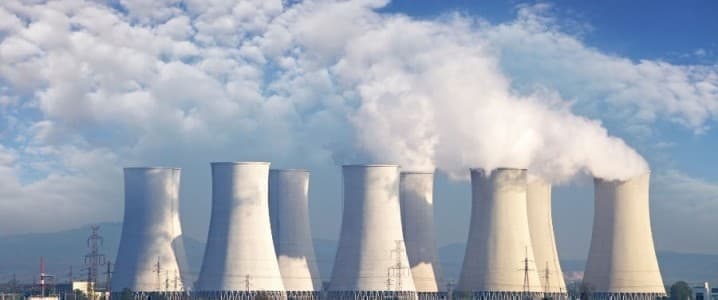Exelon plans to shut down two Illinois nuclear power plants that it previously sought to keep afloat with state subsidies—and the reasons behind the shutdown raises questions as to the competitiveness of the nuclear industry as a whole.
The parent company of Commonwealth Edison, which last year agreed to pay $200 million to settle bribery charges, had filed documents for the shutdown of the two nuclear power plants with federal regulators, it said in a statement.
“The filings are among the final steps in retiring the plants, which face revenue shortfalls in the hundreds of millions of dollars due to low energy prices and market policies that give fossil fuel plants an unfair competitive advantage,” Exelon said, adding, “Absent a legislative solution, these same market inequities will force the company to close its Braidwood and LaSalle nuclear facilities sometime in the next few years”.
According to the Center for Nuclear Science and Technology Information, nuclear power plants are “one of the most economical forms of energy production”. In fact, according to the Center, the cost of operating a nuclear plant is on par with or below that of fossil fuels.
This raises the question regarding the need for nuclear subsidies. But those figures were from 2012, and much has changed since then.
Cheap natural gas from the shale formations has been a curse for the U.S. nuclear industry. Nat gas has faithfully provided cheap electricity at a much lower cost. On top of that, renewables are undermining the competitiveness of nuclear power, too, thanks to strong government support and generous subsidies.
But authorities such as the International Energy Agency note that nuclear is a necessary component in the low-carbon energy mix of the future and that net-zero plans would be hard to make work without it. In fact, two years ago, the IEA said the decline in global nuclear power generation capacity was “disastrous” for the climate change effort.
Earlier this year, media reported that the Biden administration was aware of the role nuclear had to play in the net-zero drive. Reuters, quoting unnamed sources, reported in May that the White House was mulling over subsidies for nuclear power that could probably take the form of another production tax credit.
Nuclear power plants have generated around 20 percent of America’s annual electricity since 1990. As of December 31, 2020, 94 nuclear reactors were operating at 56 nuclear power plants in 28 states.
ADVERTISEMENT
By Charles Kennedy for Oilprice.com
More Top Reads From Oilprice.com:
- Oil Tops $75 On Shrinking U.S. Crude Inventories
- Shell Reports $5.5 Billion Net Profit And Hikes Dividends
- Why Norway Won’t Give Up On Oil & Gas



















The United States is, however, lucky in that it has abundant natural gas reserves and can therefore easily rely on gas-fired electricity plants.
Natural gas like oil will continue to play a pivotal role in the global economy and energy transition around the world.
Dr Mamdouh G Salameh
International Oil Economist
Visiting Professor of Energy Economics at ESCP Europe Business School, London
If it felt the need to bribe people to keep operating, it probably was not operating at a profit. It certainly won't be after paying these fines.
It's time to stop hiding costs from the public. I've been a nuclear fan for many decades, and wish that they would build a few MSRs if only to "burn" our existing stockpiles of long term radioactive waste. However, the price trends don't lie. Petroleum products are about the same price in constant dollars as they were 100 years ago; nuclear has seen similar price trends despite unproven claims that some newer models would be cheaper. Solar and batteries, on the other hand, have been declining in price exponentially for over 60 years and show no signs of slowing for another 20 or more. Unless someone invents "Mr. Fusion" and can sell it at Costco for $49.95, it seems that the likelihood of nuclear being able to compete on price without massive subsidies is between slim and none - and Slim hasn't been seen for years.
Even though replacing nuclear with nuclear seems to be long, costly timeline to operation you need to ask how long and at what (true) cost would it take to build an equivalent generated OUTPUT in IWT/PV and associated infrastructure.
Ontario is starting a generator refurb and the only reason it is not being aggressively opposed is that we have 2 new (and several other) gas plants idling 24/7 to back up the IWTs scattered across the province and have other baseload supply options.